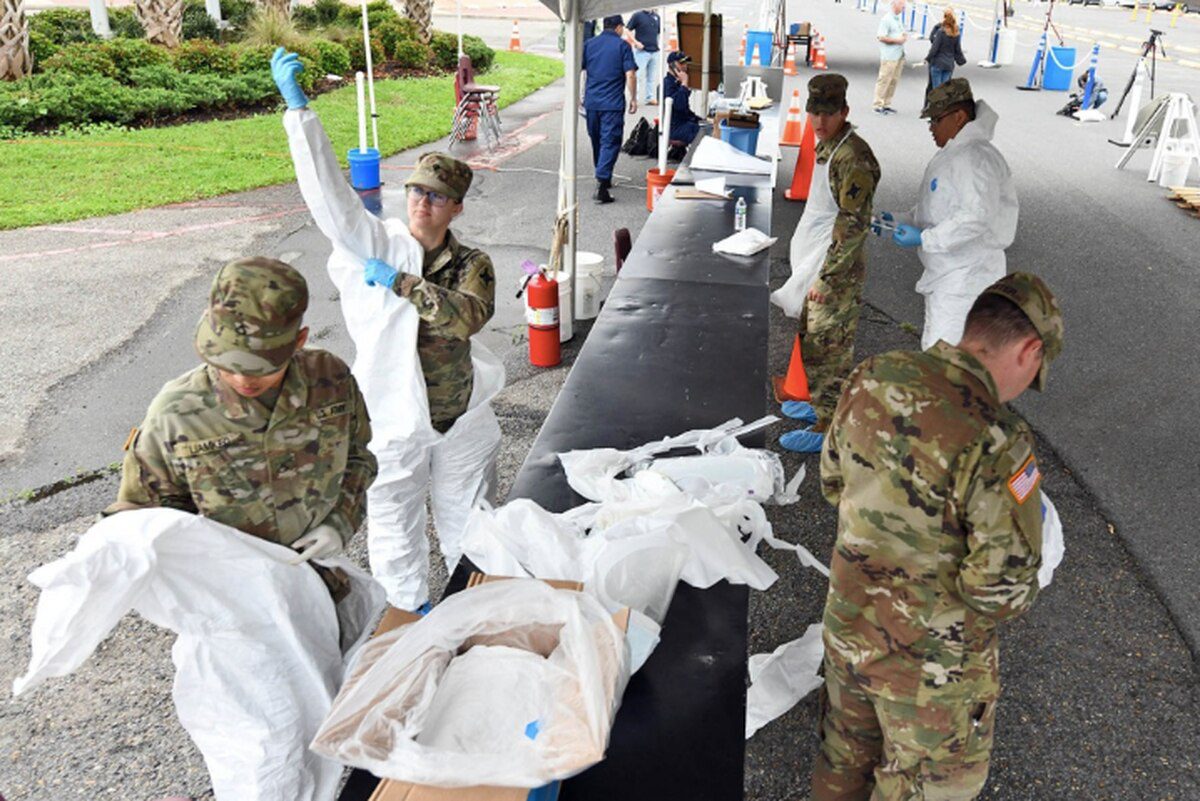The Department Of Defense and the Department of Veterans Affairs have long affirmed their commitment to military education for active duty, Guard, Reserve, and military dependents whether spouses or children.
But the DoD and VA efforts are not without support from other government agencies such as the Department of Education (DoE). Did you know the U.S. Department of Education has its own compact with well over two thousand colleges nationwide?
The Eight Keys To Veterans’ Success program is a voluntary partnership between schools and the DoE; this partnership involves providing veterans, currently serving military, military spouses and military college-age children a welcoming and consistent learning environment.
A Brief History Of Eight Keys To Veterans’ Success
The start of federal college degree programs for military members and their families can be traced back to the World War Two-era Serviceman’s Readjustment Act of 1944, which established the earliest version of the GI Bill and opened a whole new set of opportunities for millions of beneficiaries.
In 1944, attending college after military service wasn’t anything like what Army, Navy, Air Force, Marine Corps, Space Force and Coast Guard students expect today. Over the decades, colleges and the government have worked together to create more robust opportunities for transferring military experience to college credit, allowing spouses and dependents to use GI Bill benefits, and more.
But it took a long time to get there, and in some cases required direct action by the Executive Branch to push change for military students into the foreground. One excellent example? The use of the Executive Order to improve the college experience for veterans and families.
Starting around 2016, a great deal of negative press has surrounded the use of Executive Orders by the President. But the use of this presidential power has not always been fraught with controversy; one such Executive Order laid the foundation for many improvements to the college experience for military members, dependents, and spouses who wish to attend school using military education benefits.
During the Obama administration, Executive Order 13607, “Establishing Principles of Excellence for Educational Institutions Serving Service Members, Veterans, Spouses, and Other Family Members” was considered a mandate for government agencies to work together with colleges, universities, and other higher learning facilities to serve those who have served the nation.
As a result of that order, President Barack Obama announced the Eight Keys To Veterans’ Success program at the 2013 Disabled American Veterans National Convention in Florida. At the time, some 250 higher learning institutions signed up for the program, which was drafted with the help of more than one hundred experts, “to review approaches that could be scaled and replicated to foster Veterans’ success on campus and via distance learning.”
The planning phase of this program also included input from non-profit organizations, veterans service organizations, and veterans who had recently completed college programs. Over time, more than two thousand institutions of higher learning have signed up for this voluntary agreement.
Establishing this program wasn’t just a symbolic effort between the DoE, DoD, and the VA; it is also seen by many as a way to protect valuable military benefits such as the Post 9/11 GI Bill and make sure those benefits aren’t wasted on education that does not live up to its marketing hype.
And with good reason; since the start of the Post 9/11 GI Bill program in 2009, the Department of Veterans Affairs has paid more than $30 billion in GI Bill funds; according to the VA official site, nearly a million service members, Veterans, and their families have used this important military education benefit.
The Eight Keys To Veterans’ Success
The official list created by the federal government includes the following eight precepts that member institutions volunteer to abide by. It should be noted that agreeing to these principles is not considered compliance with the Department of Defense Memorandum Of Understanding all colleges must agree to in order to receive federal education funds such as GI Bill payments.
The eight keys are as follows, as presented by the DoE official site:
- Utilize a uniform set of data tools to collect and track information on veterans, including demographics, retention, and degree completion.
- Create a culture of trust and connectedness across the campus community to promote well-being and success for veterans.
- Ensure consistent and sustained support from campus leadership.
- Coordinate and centralize campus efforts for all veterans, together with the creation of a designated space for them (even if limited in size).
- Collaborate with local communities and organizations, including government agencies, to align and coordinate various services for veterans.
- Provide comprehensive professional development for faculty and staff on issues and challenges unique to veterans.
- Develop systems that ensure sustainability of effective practices for veterans.
- Implement an early alert system to ensure all veterans receive academic, career, and financial advice before challenges become overwhelming.
But Wait, There’s More
Schools who sign up to agree to implement the Eight Keys To Veterans’ Success are also encouraged by the VA and the DoE to agree to a second agreement called the Principles Of Excellence Program. This is another collaborative effort between the Department of Education and the DoD/VA.
According to the official site, the Principles of Excellence are guidelines “for educational institutions receiving funding from the VA.”
The Principles of Excellence guidelines include the following:
- Accommodate Service members and Reservists absent due to service requirements.
- Provide students with a personalized form covering the total cost of an education program.
- Provide educational plans for all military and Veteran education beneficiaries.
- Designate a point of contact to provide academic and financial advice.
- Ensure accreditation of all new programs prior to enrolling students.
- Align institutional refund policies with those under Title IV, which governs the administration of federal student financial aid programs.
- End fraudulent and aggressive recruiting techniques and misrepresentations.





